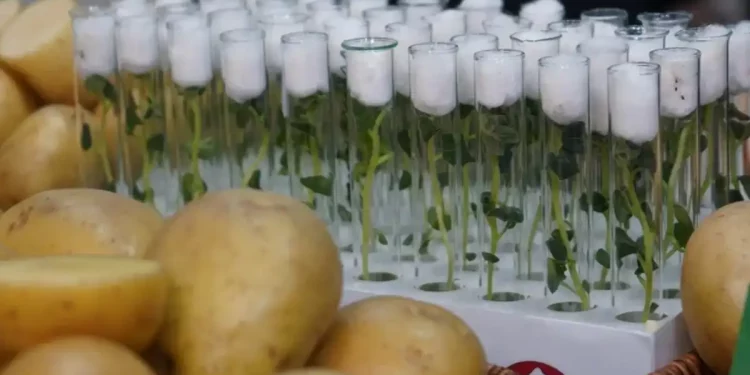In this article, we explore the groundbreaking collaboration between Voronezh and Chinese scientists as they jointly develop cutting-edge technologies for virus-free potato production. Utilizing the latest data from various sources, we delve into the significance of virus-free potatoes, the challenges they address, and the potential benefits they offer to farmers, agronomists, agricultural engineers, and farm owners.
Data Source: GlavAgronom.ru – Voronezhskie i Kitayskie uchenye sovmestno razvivayut tehnologii proizvodstva bezvirusnogo kartofelya
Potatoes are one of the most important staple crops globally, and their cultivation is a vital source of income and sustenance for millions of farmers. However, viral infections in potatoes have long been a concern, leading to significant yield losses and reduced quality. Voronezh and Chinese scientists recognized the urgent need to address this issue and have joined forces to develop innovative techniques for virus-free potato production.
According to the latest data from the joint research project, the scientists have identified and propagated virus-resistant potato varieties through meticulous breeding and selection processes. By utilizing cutting-edge molecular technologies, they have been successful in detecting and eliminating viruses in infected plants, ensuring that only healthy and virus-free plant materials are used for cultivation.
One of the most promising approaches involves tissue culture propagation, which allows for the rapid multiplication of disease-free plantlets in a controlled environment. This method not only ensures the production of virus-free potatoes but also maintains the genetic purity and vigor of the selected varieties.
The significance of this collaborative effort goes beyond just increasing potato yields and ensuring food security. Virus-free potatoes are more resilient to various environmental stresses, pests, and diseases, making them more sustainable and environmentally friendly. Moreover, this technological breakthrough has the potential to minimize the need for chemical pesticides and fertilizers, reducing the ecological footprint of potato farming.
For farmers and farm owners, adopting virus-free potato cultivation can lead to increased profitability and reduced economic risks. With healthier crops and higher yields, they can expect greater market demand for their produce, as consumers increasingly prioritize safe and sustainable food options.
Agronomists and agricultural engineers can play a crucial role in disseminating this knowledge to farmers and helping them integrate these innovative technologies into their existing farming practices. Additionally, researchers and scientists can build upon these findings to develop similar virus-resistant techniques for other crops, contributing to the overall advancement of sustainable agriculture.
In conclusion, the collaborative efforts of Voronezh and Chinese scientists in developing virus-free potato production technologies mark a significant milestone in modern agriculture. By harnessing the power of advanced biotechnologies and molecular tools, they have unlocked the potential for a more sustainable, profitable, and resilient potato farming future. As farmers, agronomists, agricultural engineers, farm owners, and agricultural scientists, we must eagerly embrace and support such advancements to secure a more prosperous and sustainable future for agriculture.
Tags: Agriculture, Potato Production, Virus-Free Technology, Sustainable Farming, Agronomy, Agricultural Engineering, Crop Resilience, Food Security, Environmental Sustainability.




